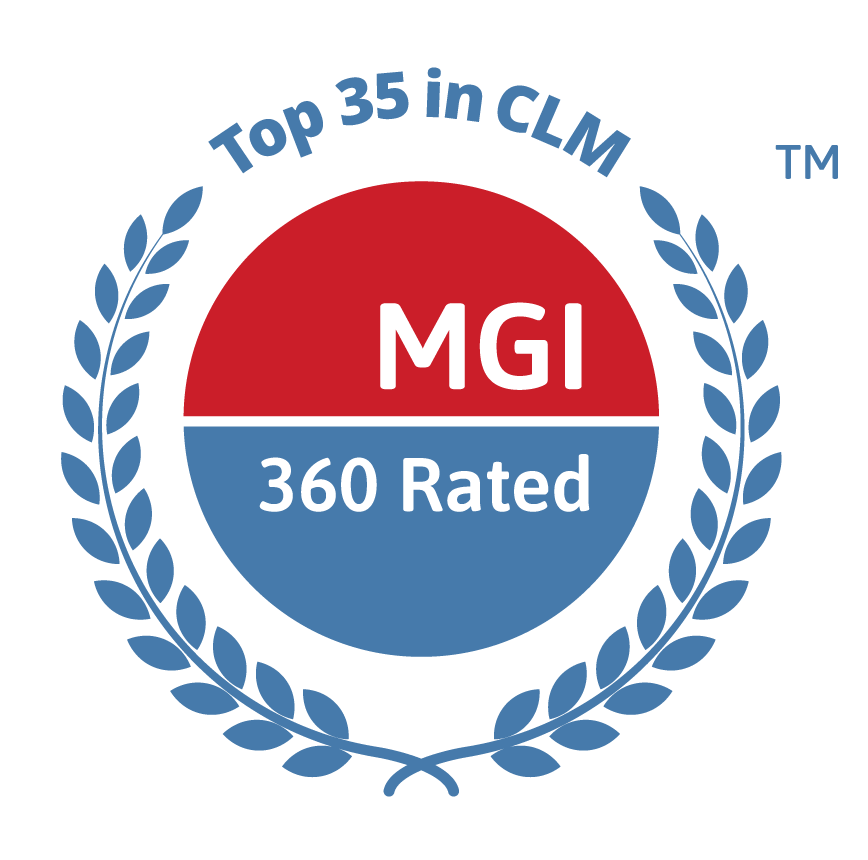
Contracts are at the heart of every organization. On any given day, at least one-third of employees touch contract data.
Specifically, contracts involve the most critical and sensitive relationships and data: they encompass customer relationships, financial data, intellectual property, human capital, partners, and suppliers. Contract management – their creation, execution, and then ongoing evolution and access to their data – is essential to business success. As such, contract lifecycle management (CLM) is becoming a core system of record, and the market for CLM tools is shifting from a period of first-time adopters to organizations adopting more sophisticated, complete solutions. While organizations stand to gain increased productivity, efficiency, and financial success with contract management software, the penalty for choosing the wrong CLM vendor is incredibly high. Even small organizations lose a year of time between the evaluation, implementation, and efforts to adopt an ill-fitting product. Not to mention the hundreds of thousands of dollars, if not more, to fix it.
This Buyer’s Guide is aimed at minimizing the risk of selecting an inadequate solution. It serves to assist prospective buyers in pinpointing the few products that align best with their specific use case, thereby averting the potential pitfalls of making an ill-fated choice. By using MGI Research’s array of research tools (360 Ratings, Use Case Notes™, and MarketLens™ charts), buyers can ensure they are considering vendors that will meet and scale with their needs.
CLM Vendors Under Coverage
Twenty-one vendors are MGI 360 Rated™ in this report: Agiloft, CobbleStone Software, Conga, Contract Logix, Contractbook, ContractPodAi, DealHub, DocuSign, Evisort, GEP, Icertis, Ironclad, JAGGAER, Juro, LinkSquares, Malbek, Onit, PandaDoc, Pramata, Provakil, and Sirion.
Fourteen additional suppliers who are noteworthy but do not yet merit a 360 Rating are included in the “honorable mention” section: Concord, Coupa, Contracts 365, Ecteon, Ivalua, Opentext, Oracle, SAP, Spotdraft, Synertrade, Thomson Reuters, Volody, Wolters Kluwer, and Zycus.
CLM Top 35 – Why These Companies?
This report focuses on the top 35 vendors in CLM and provides comprehensive MGI 360 Ratings on the top 21. These vendors, based on the research of MGI, are among the most important CLM suppliers in the market today and merit the attention of buyers, partners, and investors. The MGI 360 Rating methodology is quantitative in nature and a tough grading scale. However, if a vendor is among the 21 suppliers to receive a complete 360 Rating, by definition, it is among the top in the industry, regardless of the absolute score. The criteria for inclusion include one or more of the following:
- Market visibility: The company has one or more of these characteristics: above-average growth, often included in longlists and shortlists of buyer evaluations, large installed base, and/or most MGI clients express interest in the company or mention them in analyst calls.
- Innovation: The product has unique capabilities and the potential to disrupt the market – buyers should be aware of this product/company, even if it is not a fit for them today.
- Solution strength: Breadth and depth of solution, support for various business models and use cases, and the supplier’s ability to help customers implement and gain value from the solution.
- Demonstrated success: Most, but not all, vendors covered are able to provide MGI with reference customers and partners to interview. Independent of the provision (or lack thereof) of vendor references, MGI conducts its own interviews and research on customers, partners, and investors.
There are hundreds of CLM software providers delivering a range of products from broad solutions addressing all enterprise contract management needs to niche add-ons and vertical-specific applications. Some are part of a broader portfolio of business applications or contained within a procurement-oriented application suite. Vendors are not excluded uniquely based on size (e.g., revenue or customer count below any threshold), willingness to participate in the research process, or ability to cover a majority of buy, sell, and enterprise cases.
Inclusion in the CLM Top 35 does not represent an endorsement or an outright recommendation to purchase a product. Conversely, exclusion of a supplier from this report is not a recommendation to exempt it from consideration. Organizations should evaluate potential suppliers on merits and on a fit to their specific use case. MGI maintains Ideal Use Case notes on all suppliers with an MGI 360 Rating. Organizations should refer to these Use Case Notes and the MarketLens analysis for help in determining a list of potential suppliers to evaluate.
Get the report below to find out which CLM vendors stand out from the pack, how direct competitors differ in terms of their product functionality and ideal use cases, how the CLM market is evolving as a discipline, and other key takeaways from the CLM Top 35 Buyer’s Guide.

